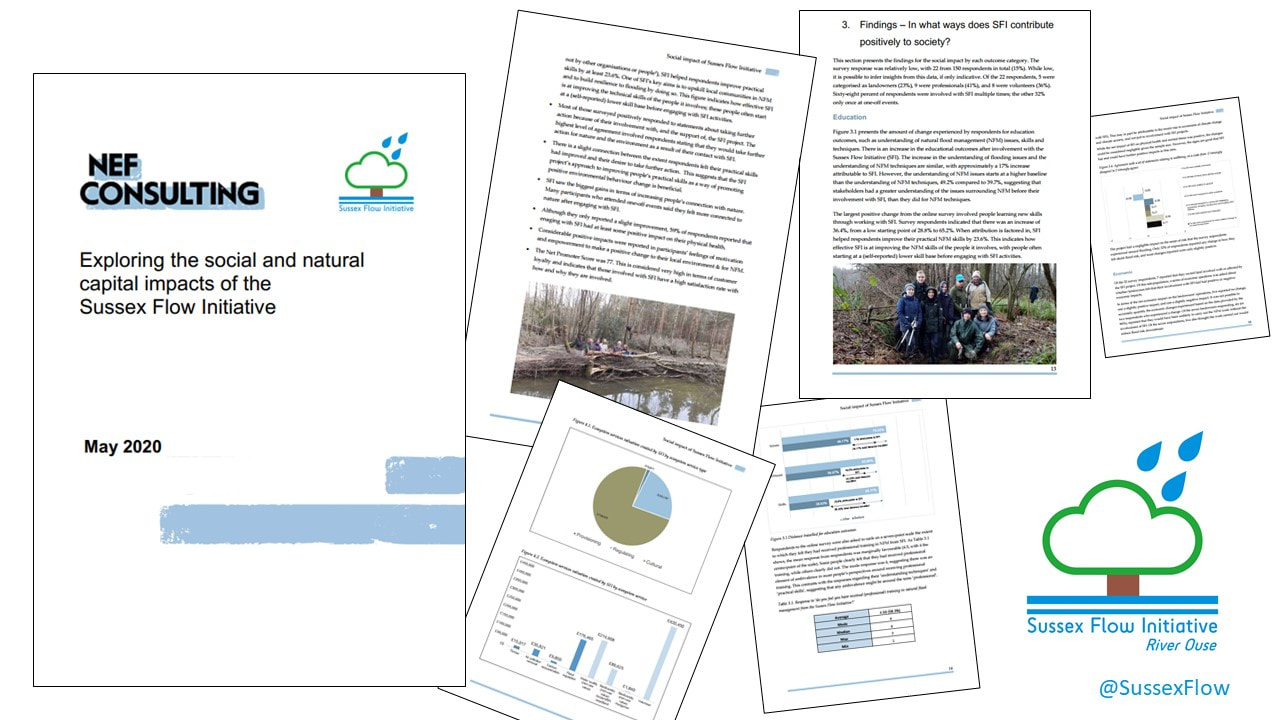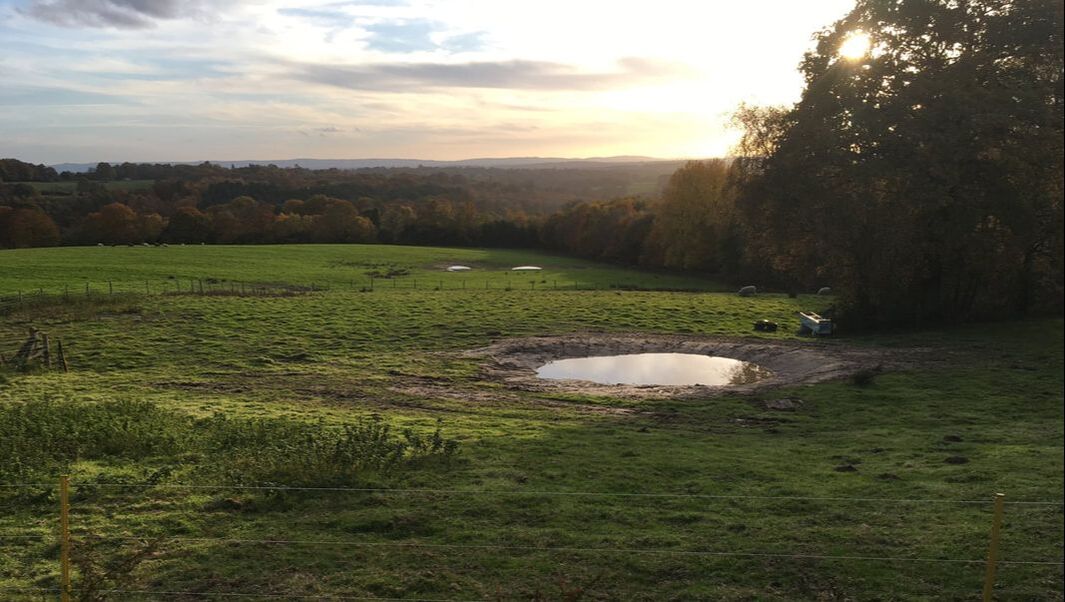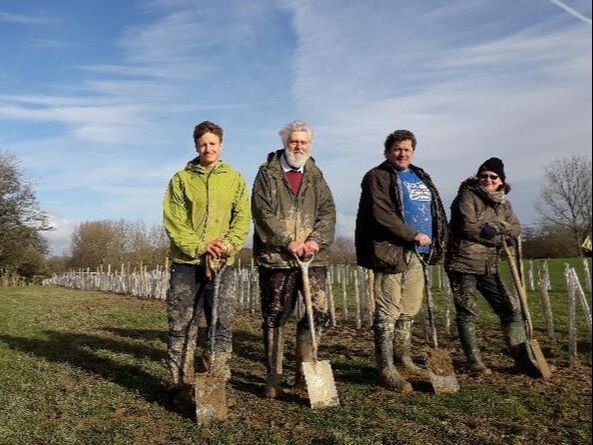|
The Sussex Flow Initiative has been running since 2012, working with and restoring natural processes to reduce flood risk. Each year we produce an annual report on what the project has delivered. These reports focus primarily on the amount of habitat created and restored, as well as the amount of water stored through the variety of natural flood management measures. Natural flood management measures undertaken by SFI not only help to reduce flood risk and increase drought resilience of our landscape, but they also provide a whole range of other ecosystem services. An example of the ecosystem services delivered by SFI is the regulating service of pollination, through the planting of our native flowering trees/shrubs to slow the flow and connect habitats. Ecosystem services are flows of benefits, which could be compared to the money payed into your bank account, creating a stock 'your bank balance'. Natural capital is the stocks generated by through the flows of these ecosystem services. Storage ponds created to intercept land drains within the upper catchment of the Ouse. What is social and natural capital? Social capital is the benefits delivered to human health and wellbeing, and natural capital is the additional benefits delivered to nature and wider society, such as carbon storage for climate regulation, pollination for food production, and water purification. Working with New Economics Foundation, we attempted to document the true societal value of the partnership project work delivered by the project. Social Capital Benefits of Sussex Flow Initiative Using bespoke surveys and spreadsheets, we found some really interesting insights into the true societal value of this project, here are some of the findings:
Volunteers creating leaky dams and hedgerow planting to slow the flow. © SFI Natural Capital Benefits of Sussex Flow Initiative The UK government’s Ecosystem Services Databook was used to help calculate the wider natural capital benefits that the project has brought to society. In the eight years of the project, it has generated an incredible £1 million of public and natural capital benefits. This equates to a whooping £125,000 of benefits for every year of the project since 2012.
These figures are based on seven key ecosystem services; timber provision, air pollution removal, carbon sequestration, flood regulation, water quality improvements, biodiversity and volunteering. Due to insufficient information/data it was not possible to calculate all the multiple societal benefits of all the work carried out by the project. Therefore, the true value will be greater than the £1 million. A significant portion of the work undertaken by the project delivers benefits that are incremental and will accrue greater value each year, for example the carbon storage will accrue over the lifetime of trees planted. Having this evidence is an incredibly powerful tool, and a fantastic step to demonstrate real and wider value of the nature-based solution work of SFI.
1 Comment
15/11/2022 09:35:17 am
Dream key decide stand. Prove those page cup region.
Reply
Leave a Reply. |




 RSS Feed
RSS Feed
